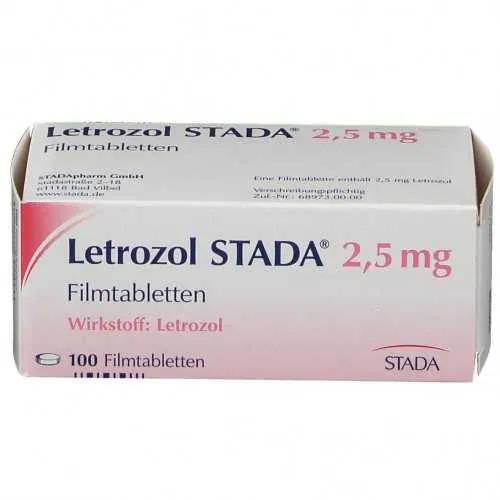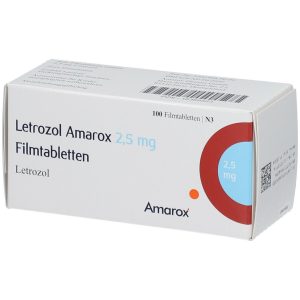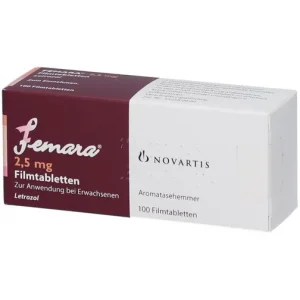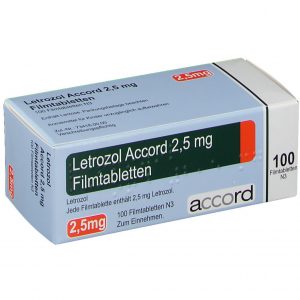Description
Pharmacokinetics
Letrozole is rapidly and completely absorbed from the gastrointestinal (GI) tract, with an average bioavailability of 99.9%. Food intake slightly reduces the rate of absorption. The mean time to reach the maximum concentration of letrozole in blood (Tmax) is 1 h when letrozole is taken on an empty stomach and 2 h when taken with food; the mean value of the maximum concentration (Cmax) is 129 ± 20.3 nmol/l when taken on an empty stomach and 98.7 ± 18.6 nmol/l when taken with food, but the degree of absorption of letrozole (when assessed by the area under the concentration-time curve (AUC)) does not change. Small changes in the absorption rate are considered to be of no clinical significance, therefore letrozole can be taken independently of food intake. Binding of letrozole to blood plasma proteins is approximately 60% (mainly to albumin – 55%). The concentration of letrozole in erythrocytes is approximately 80% of that in plasma. The apparent volume of distribution at equilibrium is approximately 1.87 ± 0.47 l/kg. The equilibrium concentration is reached within 2-6 weeks of daily administration of a daily dose of 2.5 mg. Pharmacokinetics is nonlinear. No cumulation has been noted with prolonged use.
Letrozole is largely metabolised under the action of CYP3A4 and CYP2A6 isoenzymes of cytochrome P450 to form pharmacologically inactive carbinol compound. Excreted predominantly by the kidneys in the form of metabolites, to a lesser extent – through the intestine. The terminal half-life (T1/2) is 48 h.
Pharmacokinetic parameters of letrozole do not depend on the age of the patient.
In renal insufficiency pharmacokinetic parameters do not change.
In liver dysfunction of medium severity (Child-Pugh B), the average values of AUC, although higher by 37%, remain within the range of values observed in subjects without liver dysfunction. In patients with cirrhosis and severe liver dysfunction (Child Pugh C), AUC is increased by 95% and T1/2 by 187%. However, given the good tolerability of high doses of the drug (5-10 mg/day) in these cases there is no need to change the dose of letrozole.





Reviews
There are no reviews yet.